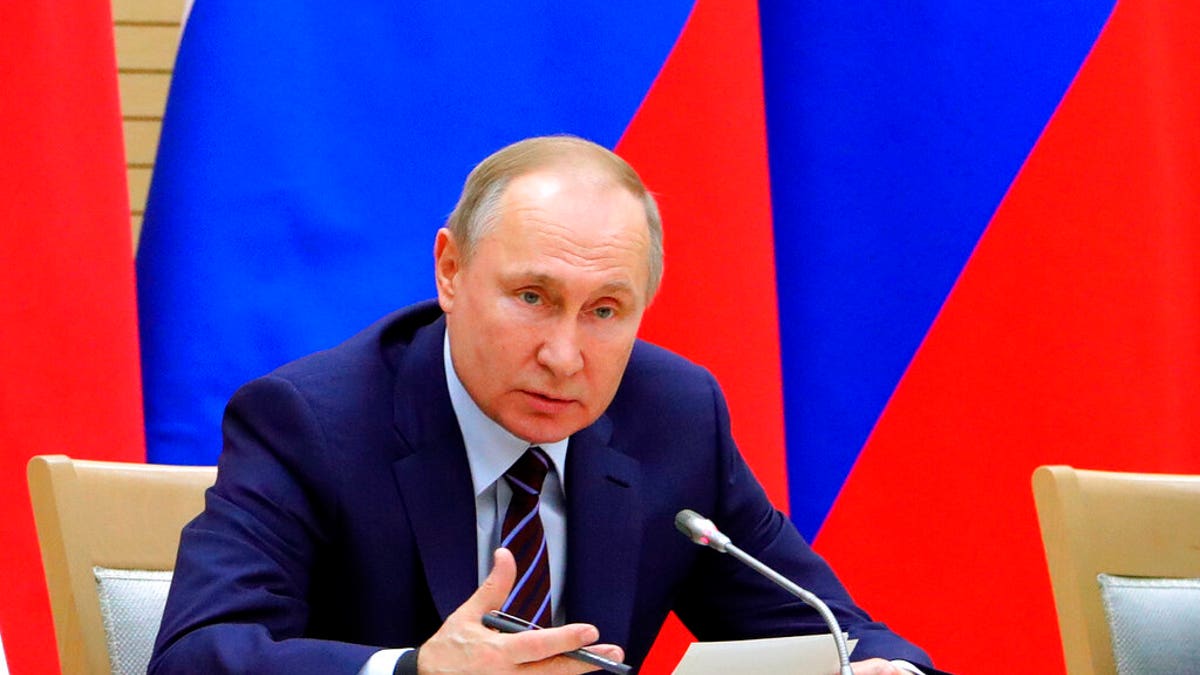Russian President Vladimir Putin on Thursday proposed sweeping reforms to the country's constitution under the veneer of strengthening democracy, but his critics say the proposals suggest an ulterior motive to maintain his grip on power well past the end of his term in 2024.
The Russian leader proposed amendments to the constitution in Wednesday's state of the nation address. Hours later, he fired Prime Minister Dmitry Medvedev and named Mikhail Mishustin, a tax chief and career bureaucrat, to succeed him.

Russian President Vladimir Putin speaks as he chairs a meeting on drafting constitutional changes at the Novo-Ogaryovo residence outside Moscow, Russia. (Kremlin Pool Photo via AP)
Putin’s proposed constitutional reforms indicated he was working to carve out a new governing position for himself after his current term, but it remains unclear what specific path he will take.
Alexei Navalny, Russia's most prominent opposition leader, tweeted that Putin's proposals reflected the 67-year-old president's intention to "rule until he dies."
Putin suggested amending the constitution to allow lawmakers to name prime ministers and cabinet members. The president currently holds the authority to make those appointments.
Speaking to the group that will draft the amendments, Putin emphasized that the changes are intended to "strengthen the role of civil society, political parties and regions in making key decisions about the development of our state."
"The role of parliament will grow, and the interaction between parliament and the cabinet will strengthen," he said.
PUTIN MEETS WITH ASSAD IN SYRIA AMID GROWING TENSIONS BETWEEN SYRIAN ALLY IRAN AND US
At the same time, Putin argued that the president should retain the right to dismiss the prime minister and cabinet ministers, to name top defense and security officials, and to be in charge of the military and law enforcement agencies.
In his address, Putin said the constitution must also specify the authority of the State Council, a body that consists of regional governors and top federal officials.
Observers speculated that Putin might try to stay in charge by shifting into the prime minister's seat again after increasing the powers of parliament and the cabinet, and curtailing presidential authority. Others suggested that he could continue pulling the strings as head of the State Council.
CLICK HERE TO GET THE FOX NEWS APP
Upper House Speaker Valentina Matviyenko said lawmakers will work on amending the constitution and complete it in the spring.
Observers say Putin's move to modify the constitution four years before the end of his term may reflect the Kremlin's concerns that an anemic economy and stagnant living standards could damage his popularity ahead of parliamentary elections in 2021.
The Associated Press contributed to this report.







































